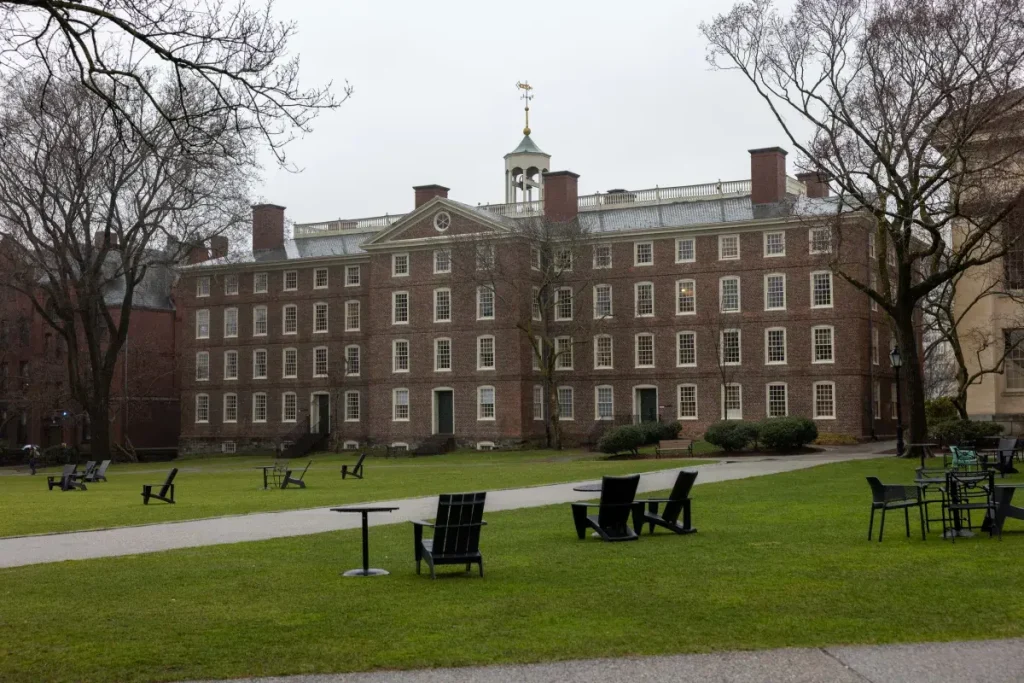Brown University Rejects White House’s Funding Proposal Over Academic Freedom Concerns
Brown University has taken a firm stance against a recent White House proposal that promised favorable access to federal funding in exchange for various commitments. President Christina Paxson formally declined the offer on Wednesday, expressing serious concerns that the 10-point ideological compact would “restrict academic freedom and undermine the autonomy of Brown’s governance.” Her decision highlights a growing tension between the Trump administration’s attempts to influence higher education and universities’ desire to maintain their independence. Brown joins the Massachusetts Institute of Technology, which similarly rejected the proposal last week, in a pushback against what many educators view as federal overreach into academic institutions.
The White House initiative represents a new approach by the Trump administration to effect change at universities that have faced criticism from conservatives. Earlier this month, nine prestigious institutions received invitations to become the first signatories to this compact, which the administration framed as an opportunity to strengthen the “mutually beneficial relationship” between universities and the government. According to White House officials, participating universities would receive “multiple positive benefits” including “substantial and meaningful federal grants.” This carrot-and-stick approach comes after the administration previously froze billions of dollars in research funding from universities it accused of antisemitism and liberal bias, suggesting both punitive and incentive-based strategies are being deployed simultaneously.
At the heart of Brown’s rejection lies concern over several provisions within the compact, particularly those centered on promoting conservative viewpoints. Universities signing the agreement would be required to commit to “transforming or abolishing institutional units that purposefully punish, belittle, and even spark violence against conservative ideas.” While President Paxson acknowledged that Brown already aligns with some of the provisions outlined in the offer, she emphasized that others contradicted fundamental university values. Unlike a previous agreement Brown reached with the Trump administration in July—which explicitly included language protecting academic freedom—Paxson noted this new proposal lacks any guarantee that the university would retain control over its curriculum or academic speech, a non-negotiable concern for the institution.
The July agreement between Brown and the Trump administration offers an interesting contrast to this latest development. That earlier deal restored lost research funding and ended federal investigations into discrimination in exchange for specific commitments from the university. Brown agreed to pay $50 million to workforce organizations in Rhode Island, adopt the federal government’s definitions of “male” and “female,” eliminate diversity targets in admissions, and renew partnerships with Israeli academics. Crucially, that agreement contained a clause affirming Brown’s academic freedom—protection absent from the new compact. Paxson emphasized in her rejection letter that her decision “aligns with the views of the vast majority of Brown stakeholders,” suggesting broad internal support for maintaining the university’s independence.
Reactions to the White House proposal have varied across institutions. While an official at the University of Texas system stated they were “honored” that UT Austin was invited to participate, most other universities have remained noncommittal, saying only that they were reviewing the proposal. MIT President Sally Kornbluth echoed Brown’s concerns in her rejection letter, writing, “America’s leadership in science and innovation depends on independent thinking and open competition for excellence.” President Trump, meanwhile, defended his administration’s approach on his Truth Social platform, drawing a distinction between institutions that “continue to illegally discriminate based on Race or Sex,” which would face enforcement actions, and those willing to “return to the pursuit of Truth and Achievement” through the proposed agreement.
The administration has requested decisions from invited universities by November 21, with feedback due by October 20. This ongoing tension between federal influence and academic independence highlights fundamental questions about the proper relationship between government and higher education in America. As President Paxson stated in her letter, “American colleges and universities are a cornerstone of innovation, growth, prosperity and national security for our nation,” underscoring the significant stakes in this debate. Brown’s commitment to uphold its July agreement while rejecting the new compact demonstrates an attempt to balance cooperation with the government while safeguarding what its leadership views as essential academic values and institutional autonomy.


